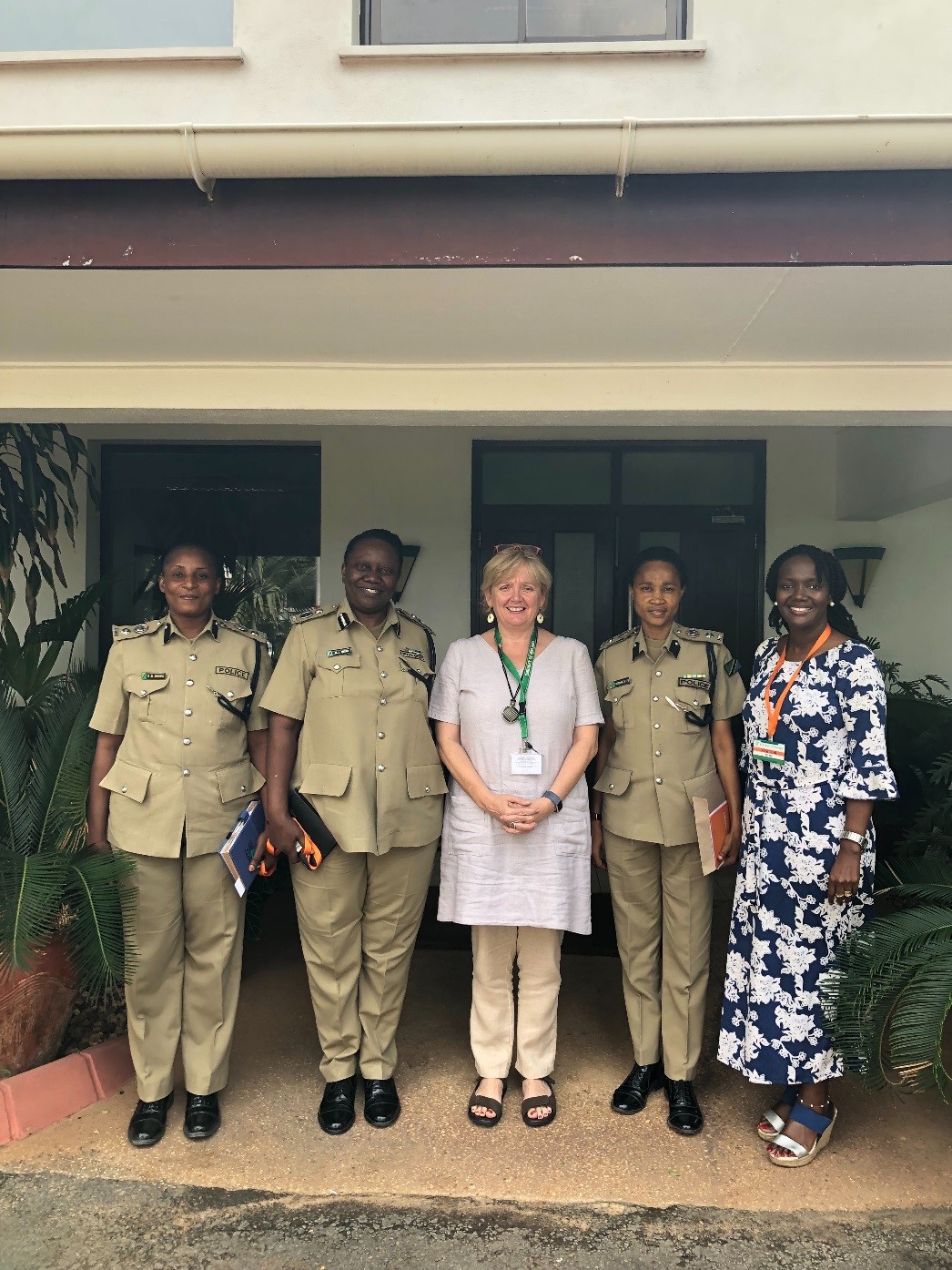Addressing GBV and Gender Inequality through the Tanzanian Criminal Justice system
News
07 October 2020
Police visit to the Embassy before an exchange visit to Ireland in 2019
The Embassy of Ireland, Tanzania’s Mission Strategy positions Gender and Women’s Empowerment at its centre. It also recognises the role that gender-based violence plays in undermining the health, wellbeing and livelihoods of women and girls, while simultaneously infringing their human rights.
Gender-based violence (GBV) is widespread and common in Tanzania. Data shows that 40% of women and girls in Tanzania aged 15-49 have experienced physical violence and 17% sexual violence in their lifetime. A survey looking at violence against children found that 27.9% of girls had experienced sexual violence before their 18th birthday.
With the COVID-19 pandemic, women and girls have become more vulnerable with evidence showing that disease outbreaks affect women and men differently, compounding existing gender inequalities, including having adverse effects on their livelihoods, food security and nutrition, health, education, and an increased risk of gender-based violence.
Within the Tanzanian criminal justice system, there are delays in disposing cases and dispensing justice at all levels. There remains a large backlog of criminal cases at the level of investigations and prosecutions, and though the reasons are varied, they include a lack of resources and requisite skills among relevant actors. Laws related to sexual offences are not harmonised, and magistrates presiding over matters in lower courts are often not equipped with the tools to assist them in applying the disparate laws and various technical procedural requirements. Reporting of GBV matters by victims remains very low, as do conviction rates. As a result, the criminal justice system is far from satisfactory for victims of GBV.
In response to the above, Ireland supports Irish Rule of Law International (IRLI) for the implementation of a programme addressing GBV and Gender inequality through Institutional Capacity Building in the Tanzanian Criminal Justice System. The programme aims to enhance the capacity of the Tanzanian Criminal Justice System to respond to Child Sexual Abuse (CSA) matters.
Ireland’s grant of €199,322will support the review of legal materials and training of investigators, police prosecutors, magistrates, social welfare officers and medical personnel in Mpwapwa District, Dodoma Region to improve protocols and practices of CSA investigations. IRLI will also organise online and subsequently in-person technical exchanges between members of the Tanzanian judiciary and their counterparts in Ireland. These will allow members of the justice system in both jurisdictions to share information, resources and foster high-level collaborative relationships between IRLI and the criminal justice institutions in addressing CSA matters; and awareness creation of Ireland’s role in developing and strengthening the rule of law in the region.
IRLI is a joint initiative of the Law Society of Ireland and the Bar of Ireland, as well as the Law Society of Northern Ireland and the Bar of Northern Ireland, dedicated to promoting the Rule of Law in developing countries. IRLI has significant experience and expertise in this area and, for this work, will be commencing a partnership with a well-respected and experienced local Children’s Rights organization working towards the protection of the rights of children, particularly the girl child - Children Dignity Forum (CDF).
On the International Day of the Girl Child, Ireland joins the International Community in renewing our hope for societies that amplify, empower and protect the voices and futures of women and girls. We are encouraged that through partnerships with organizations such as IRLI and CDF, there can be positive change where every girl and woman can realise their right to live free from violence, complete schooling and eventually earn equal pay for equal work.


